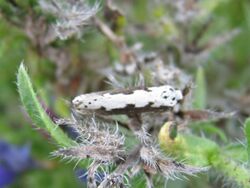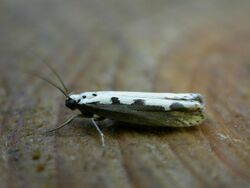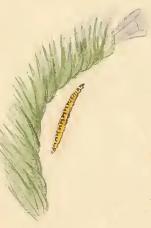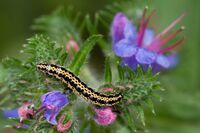Biology:Ethmia bipunctella
- The E. bipunctella invalidly described in 1936 by H. Rebel in L. Osthelder is actually E. distigmatella.
| Ethmia bipunctella | |
|---|---|

| |

| |
| Scientific classification | |
| Domain: | Eukaryota |
| Kingdom: | Animalia |
| Phylum: | Arthropoda |
| Class: | Insecta |
| Order: | Lepidoptera |
| Family: | Depressariidae |
| Genus: | Ethmia |
| Species: | E. bipunctella
|
| Binomial name | |
| Ethmia bipunctella (Fabricius, 1775)
| |
| Synonyms | |
|
Alucita bipunctella Fabricius, 1775 | |
Ethmia bipunctella is a diurnal moth from the family Depressariidae. It can be found in Central and Southern Europe, North Africa, Asia and the northeastern part of North America. E. iranella was formerly included here as a subspecies.

The wingspan of the moth ranges from 19–28 millimetres (0.75–1.10 in). The flight time ranges from May to September. The moth is bivoltine, having two generations per year.
The most important host plant is the viper's bugloss, but also Anchusa officinalis and plants from the genus Symphytum. Pupae are attached to dead wood.
External links
- Lepidoptera of Belgium
- Recent sightings on waarneming.nl (in Dutch)
Wikidata ☰ Q141859 entry
 |


